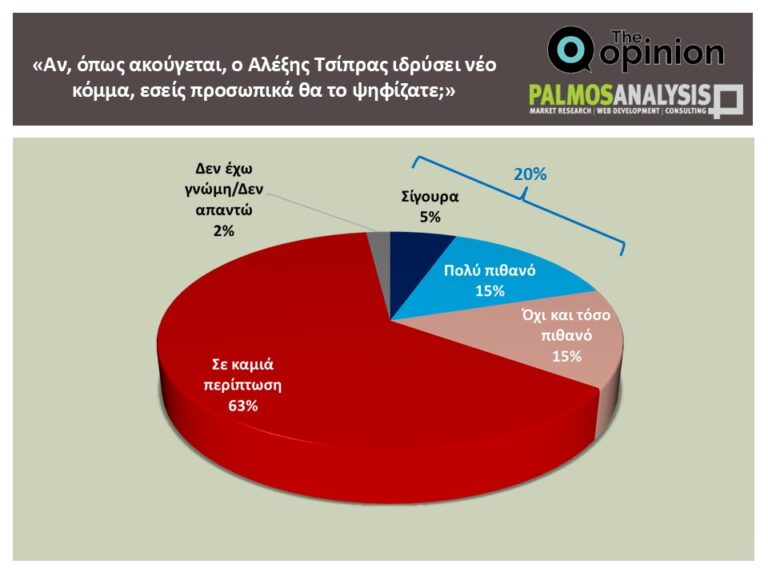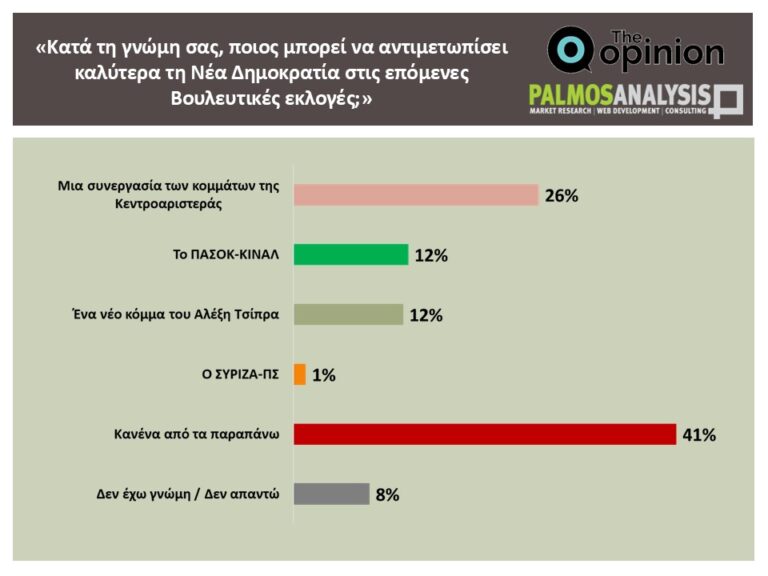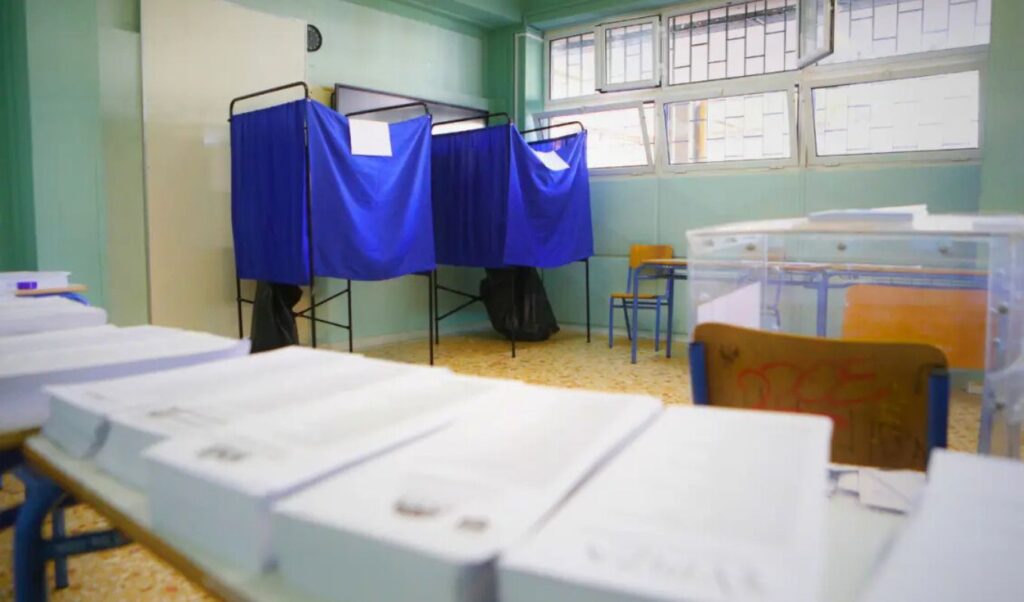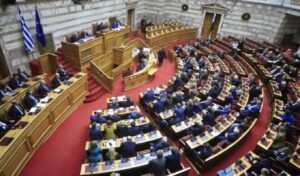The recent opinion poll by Palmos Analysis for TheOpinion, conducted after the completion of the Thessaloniki International Fair (TIF), captures public reactions to both the government’s and the opposition’s presence. Early autumn assessments and citizen reactions to the measures announced by the Prime Minister reveal significant messages for the political landscape.
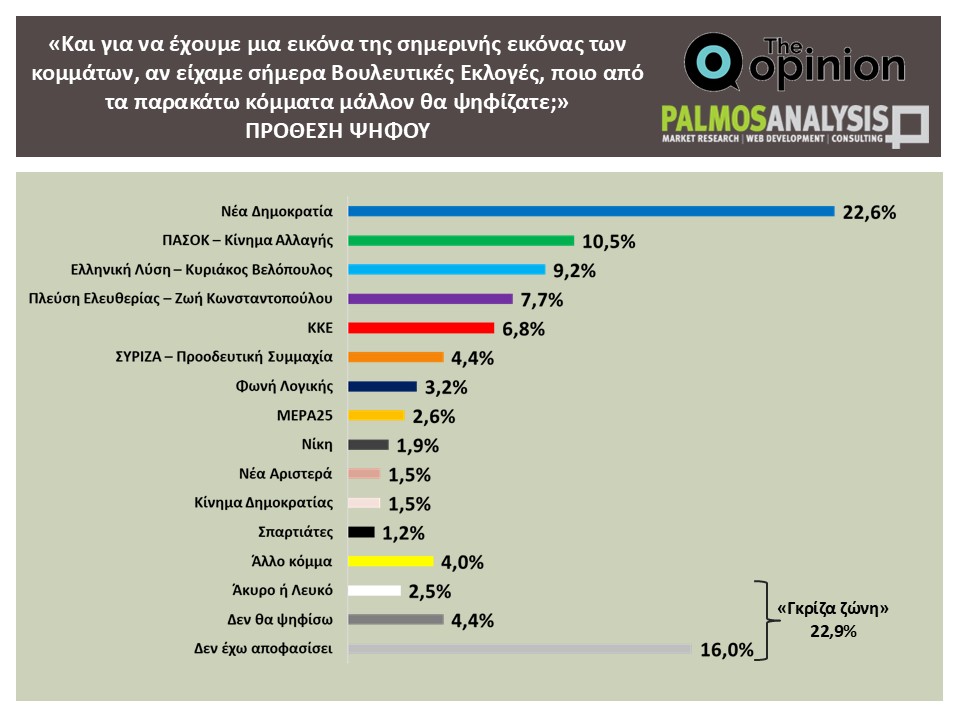
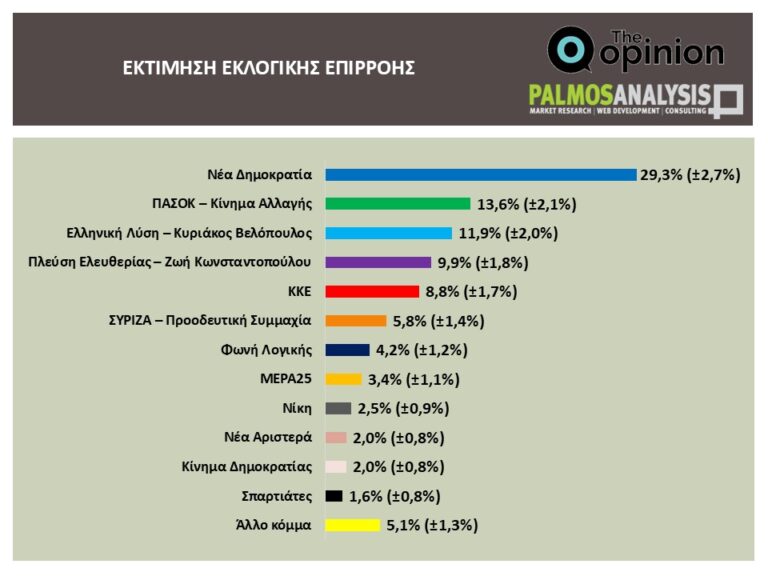
The government, which had invested heavily in the acceptance of tax relief measures announced from the TIF podium, appears not to be meeting the expectations it had created, as the results are lower than anticipated. Specifically, only 17% of citizens declare that the measures will help their household finances “A lot” (3%) or “Enough” (14%). On the other hand, 28% believe the measures will help “A little,” while 51% answer “Not at all.” This picture becomes even more concerning in the 35-54 age groups, where the percentage declaring that the measures will contribute “A lot” or “Enough” drops dramatically, reaching just 13% and 10% respectively.
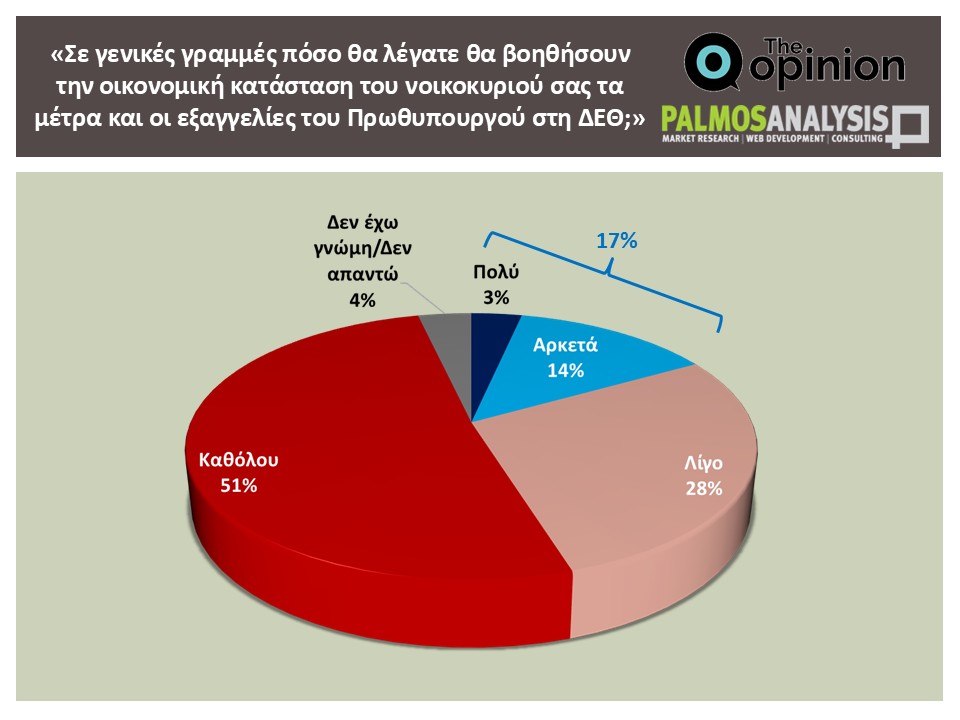
Even more disappointing are the results among New Democracy’s 2023 voters. Despite initial support, the majority (62%) of its electoral supporters declare that the measures will help their finances “A little” or “Not at all.” These results reflect the dissatisfaction and disappointment prevailing among a large portion of the electorate, which expected more from government announcements. However, the particular timing of the survey must be included in the equation, as it coincided with the OPEKEPE case returning to the spotlight with new revelations and developments clearly unfavorable for New Democracy, involving its officials. This picture leaves open the question: has that turning point in the government term arrived, where wear, fatigue from years in power, and scandal cases can no longer be addressed even with economic benefits to voters, or can the government recover with successive benefit packages in the final eighteen months of its term and renewed appeals to stability? Difficult, but political time is long and fluidity such that nothing can be ruled out.
35% believe Kyriakos Mitsotakis should seek a third term
Among the encouraging signs for the ruling party is the broader appeal that Prime Minister Kyriakos Mitsotakis continues to register compared to his party: when asked whether he should seek a third prime ministerial term, the percentage of those agreeing reaches 35%, possibly showing the size of the existing reservoir New Democracy can hope for, provided the Prime Minister takes dynamic initiatives, even against pathologies or dysfunctions of his own government and party apparatus.
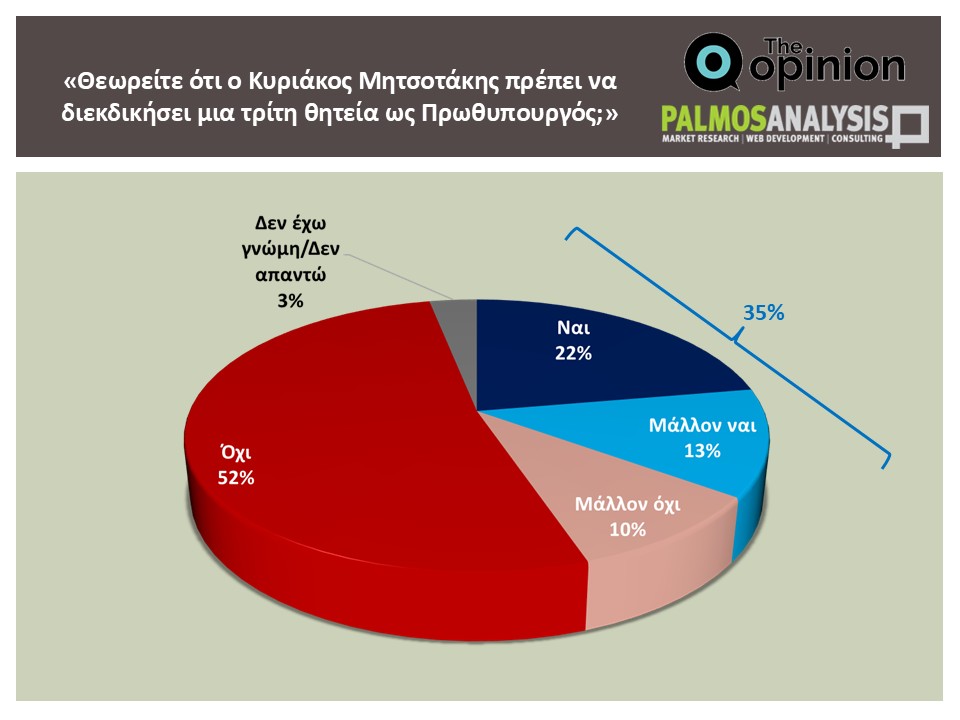
Speaking of fluidity, the picture in the opposition space could be the ideal description of the word. Both to the left and right of New Democracy, fragmentation is recorded to such a degree that despite the ruling party’s low polling flight, its difference with its pursuers remains clearly double-digit.
PASOK-KINAL, although now clearly recorded in second place after a period that saw Course of Freedom threaten or even surpass it, remains moderate for a party that claims and seeks to constitute the alternative governance pole and face New Democracy with aspirations in the next parliamentary elections. Nikos Androulakis’ presence at TIF brought some smiles and hopes of recovery, as positive assessments exceed the party’s voting intention. However, even within the party’s electoral base, those who declare that the party leader’s presence and proposals did not satisfy them are in the majority (49% declare “A little” or “Not at all” satisfied versus 42% who declare “Very” or “Quite” satisfied). Obviously, PASOK-KINAL’s effort to convince that it constitutes the main alternative governmental pole still has a long way and many difficulties ahead.
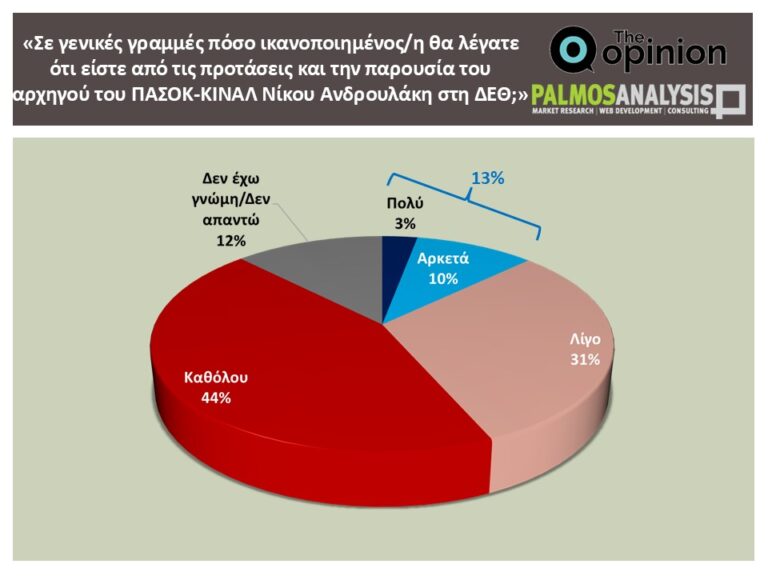
Clearly strengthened and with double-digit percentages in electoral influence estimation appears Greek Solution of Kyriakos Velopoulos, which collects voters from all parties, with main reservoirs being New Democracy and parties to its right (Spartans, Victory), but significant inflows also from center-left parties. Essentially, it has secured the basic role among “protest” parties, surpassing, at this stage, Course of Freedom. Ms. Konstantopoulou’s party shows great resilience, despite relative decline compared to first-half 2025 measurements, so far disproving estimates of rapid “deflation” of its percentages when the Tempe issue would leave the front line of current affairs.
The Communist Party remains steadily strengthened, perhaps constituting the most stable – polling-wise – piece in the space of highly fragmented center-left. A center-left that, while totaling 35% in voting intention level and 45% in electoral influence estimation level, doesn’t seem capable of forming a pole directly competitive against a government that is wearing down and struggling to recover. This is possibly the driving force behind rumors about creating a new party in this space by former Prime Minister Alexis Tsipras. In the relevant question, a potential reservoir to which he can appeal and hope is recorded, around 21%, without this of course constituting or being considered voting intention.
What the data shows about Tsipras’ new party
Simultaneously, however, when asked who can better face New Democracy in the next parliamentary elections, 26% choose cooperation of center-left parties, versus 12% choosing PASOK-KINAL and 12% believing something can be achieved by a new party under Alexis Tsipras (for SYRIZA-PS, not even worth mentioning, as only 1% choose it). This data obviously creates even greater concern for the former Prime Minister about the success prospects of a new, own venture, but also for PASOK-KINAL which has not yet convinced about its ability to express and rally the space.
